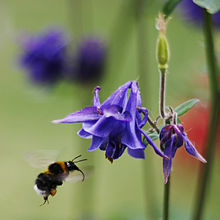Ecology
- Ayrıntılar
- Kategori: What is Ecology?
Ecology is the study of environmental systems, or as it is sometimes called, the economy of nature. "Environmental" usually means relating to the natural, versus human-made world; the "systems" means that ecology is, by its very nature, not interested in just the components of nature individually but especially in how the parts interact. Ecology is technically an academic discipline, such as mathematics or physics, although in public or media use, it is often used to connote some sort of normative or evaluative issue as in something is “ecologically bad” or is or is not “good for the ecology”. More properly ecology is used only in the sense that it is an academic discipline, no more evaluative than mathematics or physics. When a normative or evaluative term is needed then it is more proper to use the term “environmental”, i.e., environmental quality or “environmentally degrading”. Most professional ecologists are not terribly unhappy when ecology is used in the normative sense, preferring the wider public awareness of environmental issues today compared to the widespread ignorance of three decades ago.
The subject matter of ecology is normally divided onto four broad categories: physiological ecology, having to do with the response of single species to environmental conditions such as temperature or light; population ecology, usually focusing on the abundance and distribution of individual species and the factors that cause such distribution; community ecology, having to do with the number of species found at given location and their interactions; and ecosystems ecology, having to do with the structure and function of the entire suite of microbes, plants, and animals, and their abiotic environment, and how the parts interact to generate the whole. This branch of ecology often focuses on the energy and nutrient flows of ecosystems, and when this approach is combined with computer analysis and simulation we often call it systems ecology. Evolutionary ecology, which may operate at any of these levels but most commonly at the physiological or population level, is a rich and dynamic area of ecology focusing on attempting to understand how natural selection developed the structure and function of the organisms and ecosystems at any of these levels.

Restoration Ecology
- Ayrıntılar
- Kategori: What is Ecology?
The Society for Ecological Restoration defines ecological restoration as an “intentional activity that initiates or accelerates the recovery of an ecosystem with respect to its health, integrity and sustainability” (SER 2004). The practice of ecological restoration includes wide scope of projects including: erosion control, reforestation, removal of non-native species and weeds, revegetation of disturbed areas, daylighting streams, reintroduction of native species, as well as habitat and range improvement for targeted species. The term "ecological restoration" refers to the practice of the discipline of "restoration ecology".
In the view of biologist E. O. Wilson, "Here is the means to end the great extinction spasm. The next century will, I believe, be the era of restoration in ecology.".
Contents
|
Rationale for restoration
There is consensus in the scientific community that the current environmental degradation and destruction of many of the Earth's biota is considerable, and is taking place on a “catastrophically short timescale” (Novacek & Cleland 2001). In fact, estimates of the current extinction rate are 1000 to 10,000 times the normal rate (Wilson 1988). For many people biological diversity (biodiversity) has an intrinsic value; humans have a responsibility toward other living things, and obligations to future generations.
On a more anthropocentric level, natural ecosystems provide human society with food, fuel and timber. More fundamentally, ecosystem services involve the purification of air and water, detoxification and decomposition of wastes, regulation of climate, regeneration of soil fertility, and pollination of crops. Such processes have been estimated to be worth trillions of dollars annually (Daily et al. 1997).
Habitat loss is the leading cause of both species extinctions (Wilson 1988) and ecosystem service decline (Daily et al. 1997). There are two ways to reverse this trend of habitat loss: conservation of currently viable habitat and restoration of degraded habitats.
Ecosystem Services
- Ayrıntılar
- Kategori: What is Ecology?
Humankind benefits from a multitude of resources and processes that are supplied by natural ecosystems. Collectively, these benefits are known as ecosystem services and include products like clean drinking water and processes such as the decomposition of wastes. While scientists and environmentalists have discussed ecosystem services for decades, these services were popularized and their definitions formalized by the United Nations 2004 Millennium Ecosystem Assessment (MA), a four-year study involving more than 1,300 scientists worldwide.[1] This grouped ecosystem services into four broad categories: provisioning, such as the production of food and water; regulating, such as the control of climate and disease; supporting, such as nutrient cycles and crop pollination; and cultural, such as spiritual and recreational benefits.
As human populations grow, so do the resource demands imposed on ecosystems and the impacts of our global footprint. Natural resources are not invulnerable and infinitely available. The environmental impacts of anthropogenic actions, which are processes or materials derived from human activities, are becoming more apparent – air and water quality are increasingly compromised, oceans are being overfished, pests and diseases are extending beyond their historical boundaries, and deforestation is exacerbating flooding downstream. It has been reported that approximately 40-50% of Earth’s ice-free land surface has been heavily transformed or degraded by anthropogenic activities, 66% of marine fisheries are either overexploited or at their limit, atmospheric CO2 has increased more than 30% since the advent of industrialization, and nearly 25% of Earth’s bird species have gone extinct in the last two thousand years [2]. Society is increasingly becoming aware that ecosystem services are not only limited, but also that they are threatened by human activities. The need to better consider long-term ecosystem health and its role in enabling human habitation and economic activity is urgent. To help inform decision-makers, many ecosystem services are being assigned economic values, often based on the cost of replacement with anthropogenic alternatives. The ongoing challenge of prescribing economic value to nature, for example through biodiversity banking, is prompting transdisciplinary shifts in how we recognize and manage the environment, social responsibility, business opportunities, and our future as a species.
What is Agroecology?
- Ayrıntılar
- Kategori: What is Ecology?
The term agroecology can be used in multiple ways, as a science, as a movement and as a practice[1]. Broadly stated, it is the study of the role of agriculture in the world. Agroecology provides an interdisciplinary framework with which to study the activity of agriculture. In this framework, agriculture does not exist as an isolated entity, but as part of an ecology of contexts. Agroecology draws upon basic ecological principles for its conceptual framework.
Contents |
Ecological strategy
Agroecologists study a variety of agroecosystems, and the field of agroecology is not associated with any one particular method of farming, whether it be organic, conventional, intensive or extensive. Furthermore, it is not defined by certain management practices, such as the use of natural enemies in place of insecticides, or polyculture in place of monoculture.
Additionally, agroecologists do not unanimously oppose technology or inputs in agriculture but instead assess how, when, and if technology can be used in conjunction with natural, social and human assets[2]. Agroecology proposes a context- or site-specific manner of studying agroecosystems, and as such, it recognizes that there is no universal formula or recipe for the success and maximum well-being of an agroecosystem.
Deep Ecology
- Ayrıntılar
- Kategori: What is Ecology?

Ecological and Psychological Study
Deep Ecology is defined as:
- a philosophy based on our sacred relationship with Earth and all beings
- an international movement for a viable future
- a path for self realisation
- a compass for daily action
Deep Ecology Supports:
- continuing inquiry into the appropriate human roles on our planet
- root cause analysis of unsustainable practices
- reduction of human consumption
- conservation and restoration of ecosystems
- a life of committed action for Earth
Arne Naess’s original definition of ecosophy is:
"By an ecosophy I mean a philosophy of ecological harmony or equilibrium. A philosophy as a kind of sofia (or) wisdom, is openly normative, it contains both norms, rules, postulates, value priority announcements and hypotheses concerning the state of affairs in our universe. Wisdom is policy wisdom, prescription, not only scientific description and prediction. The details of an ecosophy will show many variations due to significant differences concerning not only the ‘facts’ of pollution, resources, population, etc. but also value priorities."










